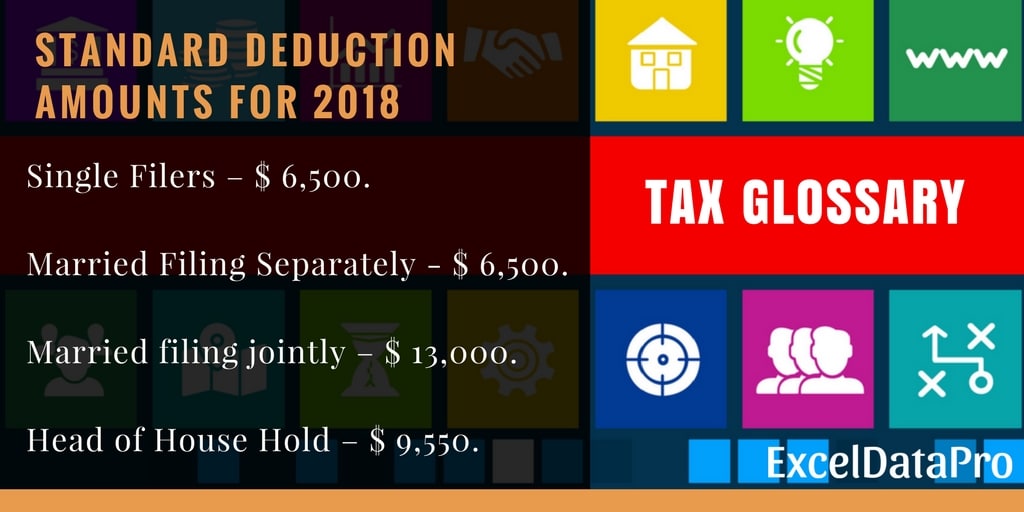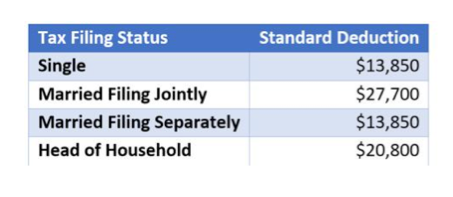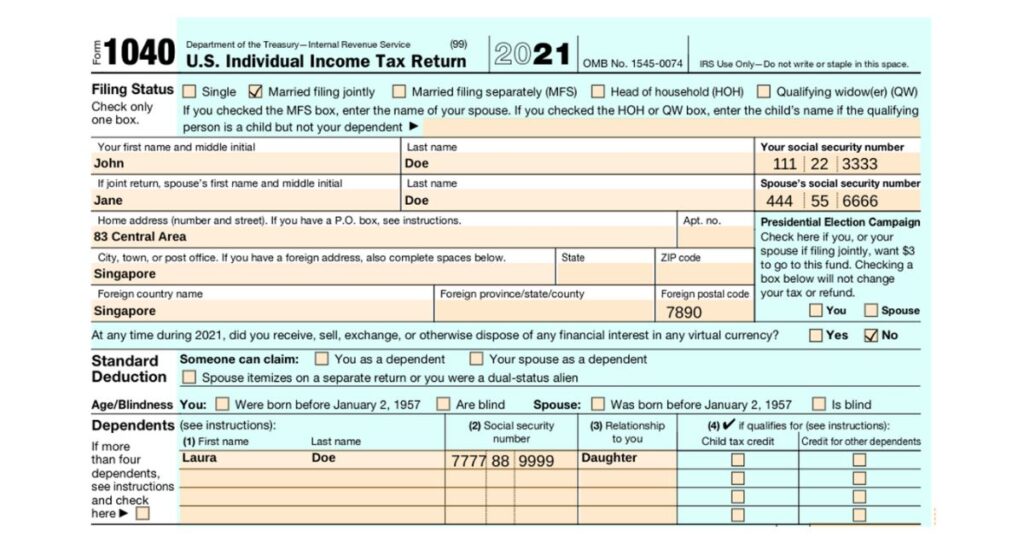What U.S. expats often misunderstand about the FEIE Standard Deduction
All You Required to Understand About the Foreign Earned Earnings Exclusion and Its Link to the Standard Deduction
The Foreign Earned Income Exclusion (FEIE) presents an essential possibility for united state people and resident aliens working abroad to decrease their gross income. Recognizing the qualification standards and claiming process is necessary. The interaction between the FEIE and the standard reduction can complicate tax approach. Missteps in navigating these regulations can bring about missed advantages. Discovering these elements discloses critical info for reliable tax planning and maximizing economic benefits.
Understanding the Foreign Earned Earnings Exclusion (FEIE)
The Foreign Earned Earnings Exemption (FEIE) acts as an essential tax obligation stipulation for U.S. citizens and resident aliens who function abroad, permitting them to exclude a significant portion of their foreign-earned earnings from U.S. government taxes. This stipulation is crucial for individuals living outside the United States, as it assists reduce the financial burden of double taxation on earnings gained in foreign countries. By making use of the FEIE, qualified taxpayers can decrease their gross income significantly, advertising monetary stability while living and working overseas. The exclusion quantity is changed annually for rising cost of living, guaranteeing it reflects existing financial problems. The FEIE is specifically useful for those in areas with a greater price of living, as it allows them to keep more of their revenues. Recognizing the technicians and ramifications of the FEIE empowers migrants to make informed economic decisions and enhance their tax circumstances while staying abroad.
Eligibility Requirements for the FEIE
To certify for the Foreign Earned Earnings Exclusion, people must meet particular qualification demands that include the Residency Test and the Physical Presence Test. Furthermore, work status plays an essential function in establishing eligibility for this tax advantage. Comprehending these requirements is necessary for anybody looking for to make use of the FEIE.

Residency Test Criteria
Identifying eligibility for the Foreign Earned Earnings Exemption (FEIE) depends upon meeting certain residency examination standards. Mostly, individuals need to develop their tax home in a foreign nation and demonstrate residency via either the authentic house test or the physical visibility test. The authentic home test calls for that a taxpayer has actually established an irreversible home in a foreign nation for a nonstop duration that extends a whole tax year. This includes showing intent to make the foreign area a primary home. Additionally, the taxpayer needs to display ties to the foreign nation, such as safeguarding work, household, or housing links. Fulfilling these residency standards is necessary for receiving the FEIE and properly reducing tax obligation liabilities on earned earnings abroad.
Physical Visibility Test
Fulfilling the residency requirements can also be accomplished through the physical presence test, which offers an alternate course for getting the Foreign Earned Revenue Exclusion (FEIE) To satisfy this examination, an individual have to be physically existing in a foreign country for a minimum of 330 complete days throughout a successive 12-month duration. This need emphasizes the importance of actual physical presence, instead of just maintaining a residence abroad. The 330 days do not need to be consecutive, permitting versatility in travel setups. This test is especially helpful for U.S. homeowners or people working overseas, as it enables them to omit a considerable section of their foreign made earnings from U. FEIE Standard Deduction.S. taxation, therefore reducing their overall tax obligation liability
Work Condition Demands
Eligibility for the Foreign Earned Earnings Exclusion (FEIE) hinges on certain work standing needs that people need to satisfy. To certify, taxpayers must show that their revenue is originated from foreign resources, usually via employment or self-employment. They have to be either a united state resident or a resident alien and preserve a tax home in a foreign country. In addition, individuals have to fulfill either the Physical Visibility Test or the Bona Fide House Test to establish their foreign status. Freelance individuals must report their internet incomes, guaranteeing they do not exceed the recognized exemption limits. It's essential for candidates to preserve correct documents to confirm their claims relating to work condition and international earnings throughout the tax obligation year.
Exactly how to Assert the FEIE

Qualification Requirements Discussed
For people looking for to take advantage of the Foreign Earned Income Exclusion (FEIE), understanding the qualification demands is essential. To certify, one must fulfill two main examinations: the bona fide home test or the physical existence test. The authentic home test puts on those who have actually developed a copyright in an international country for a continuous period, typically a year or more. Alternatively, the physical presence examination requires people to be literally present in a foreign nation for at the very least 330 days during a 12-month duration. FEIE Standard Deduction. Additionally, only gained earnings from foreign resources qualifies for exemption. Fulfilling these standards is essential for taxpayers desiring to reduce their gross income while living abroad
Required Tax Types
How can one properly declare the Foreign Earned Earnings Exemption (FEIE)? To do so, details tax forms must be used. The main kind needed is internal revenue service Type 2555, which permits taxpayers to report foreign made income and claim the exemption. This kind requires thorough information regarding the person's foreign residency and the earnings earned while living abroad. Additionally, if declaring the exemption for real estate costs, Form 2555-EZ might be made use of for simpleness, supplied specific standards are fulfilled. It is essential to ensure that all required areas of the types are finished accurately to avoid delays or problems with the internal revenue service. Comprehending these kinds is crucial for making the most of the benefits of the FEIE.
Filing Process Steps
Declaring the Foreign Earned Income Exemption (FEIE) entails a series of clear and orderly steps. First, individuals must identify their eligibility, validating they meet the physical existence or bona fide home tests. Next off, they ought to finish internal revenue service Kind 2555, outlining income earned abroad and any type of suitable exclusions. It is necessary to gather supporting documents, such as international tax obligation returns and evidence of residence (FEIE Standard Deduction). After completing the type, taxpayers should connect it to their yearly income tax return, normally Form 1040. Filing electronically can streamline this process, but making sure precise details is essential. People must keep duplicates of all submitted forms and supporting documents for future referral in case of audits or queries from the IRS.
The Requirement Deduction: An Introduction
The common deduction functions as a vital tax obligation benefit that simplifies the filing process for many individuals and households. This deduction enables taxpayers to decrease their taxable revenue without the demand to itemize reductions, making it an appealing choice for those with straightforward financial situations. For the tax year, the basic deduction amount differs based upon declaring status, with different thresholds for solitary filers, couples filing jointly, and heads of home.
The standard reduction is adjusted yearly for inflation, ensuring its significance over time. Taxpayers that qualify can select in between the standard reduction and detailing their deductions, generally selecting the higher benefit. By giving a baseline reduction, the basic reduction sustains taxpayers in reducing their total tax responsibility, thus improving their financial setting. Understanding the basic deduction is vital for reliable tax preparation and making best use of prospective financial savings for family members and people alike.
Interaction In Between FEIE and Standard Reduction
While both the Foreign visit this site Earned Revenue Exclusion (FEIE) and the basic deduction serve to minimize taxed earnings, their interaction can considerably impact a taxpayer's overall tax liability. Taxpayers that get the FEIE can exclude a considerable amount of their foreign-earned revenue, which might influence their eligibility for the basic reduction. Specifically, if a taxpayer's foreign income is entirely excluded under the FEIE, their taxable income might drop listed below the threshold essential to assert the typical deduction.
It is essential to keep in mind that taxpayers can not double-dip; they can not utilize the same income to assert both the FEIE and the typical reduction. When identifying the ideal approach for tax decrease, this implies that mindful consideration is required. Ultimately, recognizing just how these two provisions interact enables taxpayers to make informed choices, guaranteeing they optimize their tax obligation advantages while remaining compliant with IRS regulations.
Tax Benefits of Making Use Of the FEIE
Utilizing the Foreign Earned Income Exclusion (FEIE) can give significant tax benefits for united state citizens and resident aliens living and working abroad. This exclusion allows qualified people to omit a particular quantity of foreign-earned earnings from their gross income, which can result in considerable tax financial savings. For the tax year 2023, the exclusion quantity depends on $120,000, noticeably minimizing the taxable earnings reported to the IRS.

Furthermore, the FEIE can aid avoid dual taxation, as foreign tax obligations paid on this income may likewise be qualified for credit histories or reductions. By purposefully using the FEIE, taxpayers can preserve more of their income, permitting improved monetary stability. Additionally, the FEIE can be advantageous for those that receive the bona fide home test or physical existence test, supplying adaptability in handling their tax obligation obligations while living overseas. Generally, the FEIE is a useful tool for expatriates to optimize their monetary sources.

Usual Errors to Stay Clear Of With FEIE and Common Deduction
What challenges should taxpayers recognize when claiming the Foreign Earned Revenue Exemption (FEIE) together with the typical deduction? One common blunder is assuming that both benefits can be asserted all at once. Taxpayers must comprehend that the FEIE has to be declared prior to the typical deduction, as the exemption basically lowers gross income. Failing to fulfill the residency or physical presence examinations can likewise result in ineligibility for the FEIE, resulting in unanticipated tax responsibilities.
In addition, some taxpayers overlook the need of proper paperwork, such as maintaining documents of international revenue and traveling dates. One more constant mistake is overlooking the exclusion quantity, possibly because of incorrect kinds or false impression of tax obligation laws. Eventually, individuals need to maintain in mind that asserting the FEIE can influence eligibility for particular tax obligation credit reports, which can complicate their general tax situation. Understanding of these challenges can assist taxpayers navigate the intricacies of worldwide tax better.
Frequently Asked Questions
Can I Assert FEIE if I Live Abroad Part-Time?
Yes, an individual can declare the Foreign Earned Earnings Exemption if they live abroad part-time, provided they meet the needed needs, such as the physical visibility or bona fide house tests laid out by the internal revenue service.
Does FEIE Affect My State Tax Commitments?
The Foreign Earned Revenue Exemption (FEIE) does not straight impact state tax obligation commitments. States have differing regulations regarding earnings made abroad, so individuals must consult their particular state tax obligation guidelines for accurate assistance.
Are There Any Expiry Dates for FEIE Claims?
Foreign Earned Revenue Exclusion (FEIE) claims do not have expiry days; however, they must be claimed every Recommended Site year on tax returns. Failure official statement to case in a provided year may result in lost exclusion advantages for that year.
How Does FEIE Effect My Social Security Conveniences?
The Foreign Earned Income Exclusion (FEIE) does not directly impact Social Protection benefits, as these advantages are based upon lifetime revenues. Omitted earnings might decrease general profits, potentially affecting future benefit computations.
Can I Revoke My FEIE Claim After Filing?
Yes, a person can revoke their International Earned Revenue Exclusion insurance claim after declaring. This cancellation needs to be submitted through the proper tax obligation kinds, and it will affect their tax obligation commitments and prospective deductions moving on.
The Foreign Earned Income Exemption (FEIE) presents a vital opportunity for U.S. citizens and resident aliens functioning abroad to minimize their taxable earnings. Comprehending the Foreign Earned Earnings Exemption (FEIE)
The Foreign Earned International Exclusion RevenueFEIE) serves as offers essential tax important tax obligation U.S. citizens united state resident aliens who work thatFunction allowing them enabling exclude an omit portion considerable part foreign-earned income from Earnings federal united state. While both the Foreign Earned Earnings Exemption (FEIE) and the common reduction serve to reduce taxable income, their communication can greatly affect a taxpayer's overall tax obligation liability. Utilizing the Foreign Earned Income Exclusion (FEIE) can supply noteworthy tax advantages for U.S. citizens and resident aliens living and functioning abroad. Foreign Earned Income Exemption (FEIE) insurance claims do not have expiration days; nonetheless, they should be declared annually on tax returns.